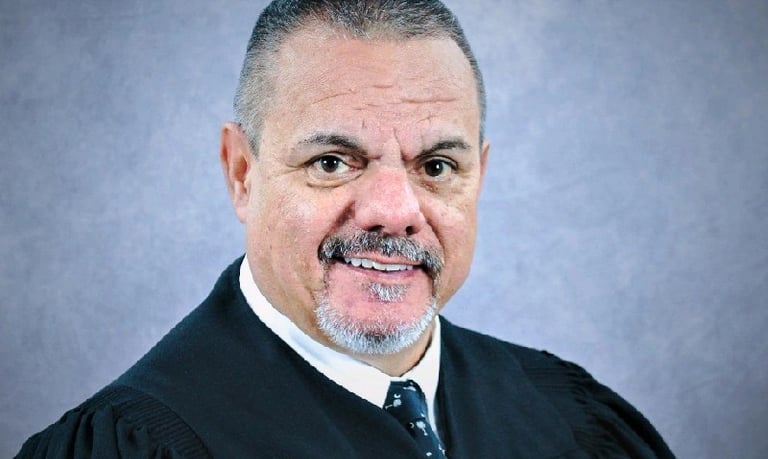Judge Singleton Refuses Recusal Despite Allegations of Judicial Misconduct, Extortion, and Bias in Doyle Pierce Estate Case
OCONEE PROBATE COURT


The continued involvement of Judge Singleton in the Doyle Pierce estate case poses a significant threat to Dorothy Pierce's substantial rights and undermines the integrity of the judicial process.
Seneca, SC – Dorothy Pierce, the petitioner in the ongoing probate case regarding the estate of her late husband, Doyle Elton Pierce, has filed a motion to recuse Judge Danny Singleton from adjudicating the case. Pierce contends that Judge Singleton’s continued involvement poses a conflict of interest and undermines the integrity of the judicial process. Despite these serious allegations, Judge Singleton has refused to step down.
Background
The motion, filed in the Probate Court of Oconee County under case number 2020ES3700532, outlines several grounds for recusal, emphasizing the judge's alleged bias and improper conduct. Pierce, who is proceeding pro se, raises the following points in her motion:
Conflict of Interest as Witness and Judge: Pierce has filed a lawsuit against Judge Singleton in the Oconee County Circuit Court, alleging judicial misconduct, extortion, harassment, and other improprieties. She argues that Judge Singleton’s dual role as both a material witness and a judge in matters related to the estate compromises his impartiality and violates the South Carolina Code of Judicial Conduct, Rule 501, SCACR.
Personal Relationships with Parties: Pierce asserts that Judge Singleton has personal relationships with several parties involved in the litigation, including Donna Moore, Gregory Pierce, and Jared Adam Pierce, with whom he shares a childhood friendship. This, she claims, influences his objectivity and impartiality, further violating judicial conduct standards.
Misinterpretation of Procedural Rules: Pierce contends that Judge Singleton has demonstrated a fundamental misunderstanding of South Carolina Civil Rules of Procedure, particularly regarding the effect of appeals on trial court proceedings. Despite the automatic stay provision typically accompanying appeals, Judge Singleton has continued to adjudicate matters that should be under appellate jurisdiction.
Unauthorized Judicial Intervention: The motion details instances where Judge Singleton has overstepped his authority by directly intervening in estate matters without proper judicial oversight. Examples include halting an auction organized by Pierce, removing her from her role as Personal Representative without a motion from other parties, and instructing a bank to freeze the estate account.
Unauthorized Judicial Orders: Pierce highlights that Judge Singleton has issued orders without motions from other parties, bypassing procedural safeguards designed to protect the rights of all involved. Such actions, she argues, demonstrate a disregard for due process and fairness.
Threats and Coercive Conduct: Pierce accuses Judge Singleton of using threats and intimidation tactics in his communications, pressuring her through illegal email orders and creating a hostile environment that impedes her ability to seek justice.
Immediate Judicial Response
Immediately upon the filing of the motion to recuse, Judge Singleton swiftly issued an order denying Mrs. Pierce's motion.
Arguments in Favor of Judge's Recusal in Doyle Pierce Estate Case
The motion for recusal filed by Dorothy Pierce against Judge Danny Singleton in the ongoing probate case of Doyle Elton Pierce's estate raises several critical arguments in favor of Judge Singleton's disqualification. These arguments emphasize the potential bias and conflicts of interest that could significantly impact Pierce's substantial rights.
Conflict of Interest and Appearance of Impropriety
One of the primary arguments for recusal is the inherent conflict of interest arising from Judge Singleton’s involvement in both judicial and extrajudicial capacities. Pierce has filed a lawsuit against Judge Singleton in the Oconee County Circuit Court, alleging judicial misconduct, extortion, harassment, and other improprieties. This lawsuit directly involves Judge Singleton, making him a material witness whose impartiality is compromised.
Under the South Carolina Code of Judicial Conduct, Rule 501, SCACR, a judge must disqualify themselves from any proceeding in which their impartiality might reasonably be questioned. The dual role of Judge Singleton as both a judge and a party to related litigation creates an appearance of impropriety that undermines public confidence in the judicial process.
Personal Relationships with Litigants
Pierce also argues that Judge Singleton has personal relationships with several parties involved in the litigation, including Donna Moore, Gregory Pierce, and Jared Adam Pierce. These relationships, dating back to childhood, could influence Judge Singleton’s objectivity and impartiality. Canon 2 of the Code of Judicial Conduct mandates that a judge should avoid any appearance of bias or favoritism, especially when personal connections with litigants are involved.
Misinterpretation of Procedural Rules
Another argument for recusal is Judge Singleton's alleged misinterpretation and misapplication of procedural rules. Pierce contends that Judge Singleton has continued to adjudicate matters subject to appellate jurisdiction despite the automatic stay provisions typically accompanying appeals. This misinterpretation has led to erroneous rulings that jeopardize Pierce's right to fair adjudication.
The South Carolina Supreme Court acknowledges that the service of a notice of appeal typically stays matters decided in the order, judgment, decree, or decision on appeal. By continuing to issue orders and make decisions while an appeal is pending, Judge Singleton is acting outside his jurisdiction, further undermining the integrity of the judicial process.
Unauthorized Judicial Intervention and Orders
Pierce highlights instances of unauthorized judicial intervention, where Judge Singleton has directly intervened in estate matters without proper judicial oversight. Examples include halting an auction organized by Pierce, removing her as Personal Representative without a motion from other parties, and instructing a bank to freeze the estate account. Such actions demonstrate a clear overreach of judicial authority and a disregard for due process.
Judge Singleton has also issued orders without motions from other parties, bypassing procedural safeguards designed to protect the rights of all involved. This unilateral decision-making process further erodes the fairness and impartiality required in judicial proceedings.
Threats and Coercive Conduct
Lastly, Pierce accuses Judge Singleton of using threats and intimidation tactics in his communications, pressuring her through illegal email orders and creating a hostile environment. Such behavior not only violates Pierce's rights but also constitutes an abuse of judicial authority.
Impact on Pierce's Substantial Rights
The continued involvement of Judge Singleton in this case, given the allegations of bias and impropriety, poses a significant threat to Dorothy Pierce's substantial rights. A judge's impartiality is fundamental to ensuring fair and just adjudication. Here’s how Judge Singleton’s presence on the case could affect Pierce’s substantial rights:
Erosion of Fair Trial Rights: Pierce's right to a fair trial is compromised if the judge presiding over her case has a personal stake in the outcome or holds biases against her. This jeopardizes the impartiality and objectivity required in judicial proceedings.
Prejudicial Rulings: The potential for prejudicial rulings increases when a judge is personally involved in related litigation or has personal relationships with parties involved. Such rulings can adversely affect the equitable distribution of the estate and Pierce’s legal standing as the Personal Representative.
Intimidation and Coercion: The use of threats and coercive conduct by a judge can intimidate a litigant, discouraging them from fully exercising their legal rights. This undermines the litigant's ability to present their case effectively and seek justice.
Violation of Due Process: Procedural errors and misinterpretations of the law by a biased judge can lead to violations of due process, further hindering Pierce's ability to obtain a fair and just resolution.
Loss of Public Confidence: The appearance of bias and impropriety damages public confidence in the judiciary. It is essential for the integrity of the judicial system that judges are perceived as impartial and fair arbiters of justice.
Conclusion
The arguments in favor of Judge Singleton's recusal are compelling and underscore the importance of maintaining impartiality and fairness in judicial proceedings. The continued involvement of Judge Singleton in the Doyle Pierce estate case poses a significant threat to Dorothy Pierce's substantial rights and undermines the integrity of the judicial process. Recusal is necessary to ensure that Pierce receives a fair and just adjudication of her claims, free from bias and undue influence.
